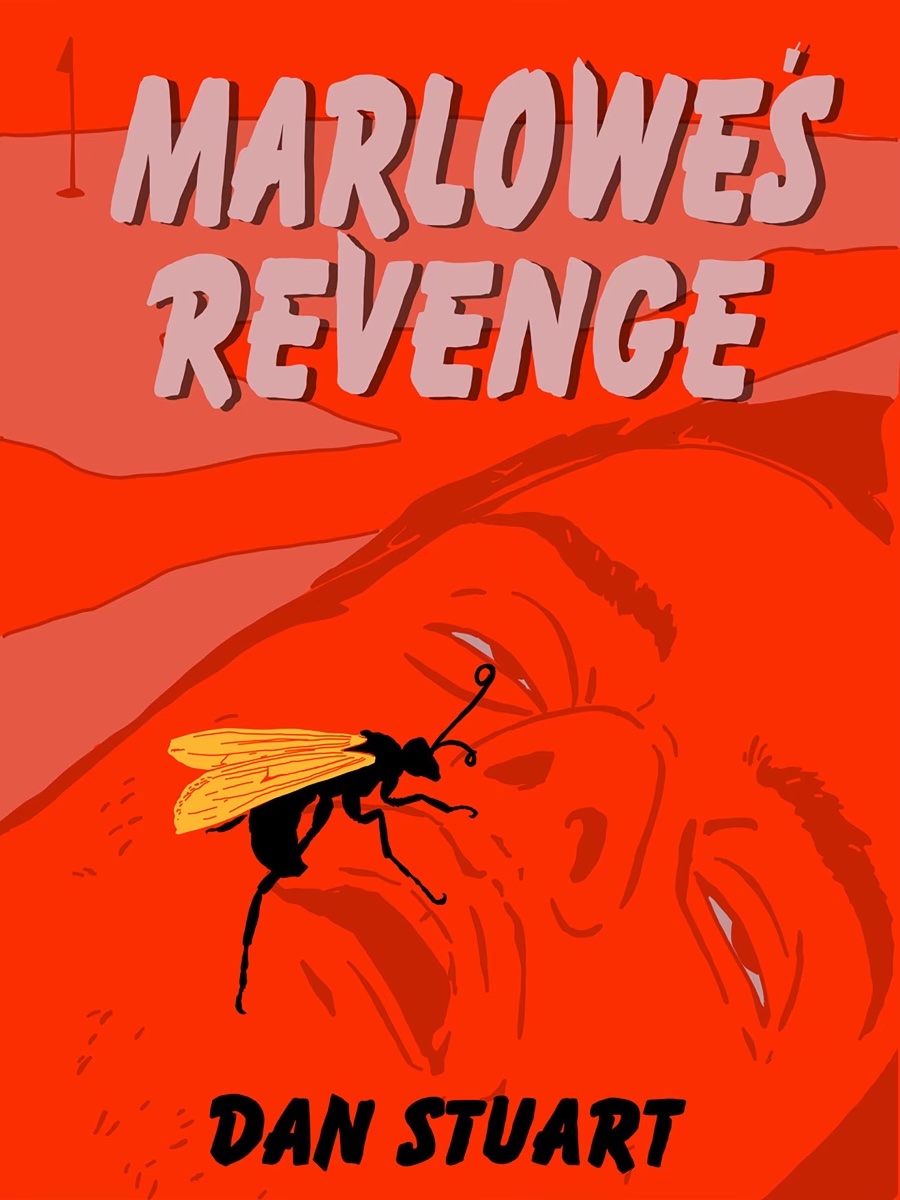Green On Red Man Dan Stuart completes Marlowe trilogy: Real life, they say, is often stranger than fiction. The last few years on this seemingly damned planet have certainly seen that borne out. In the case of Dan Stuart, the two planes are mixed, stirred and served on a platter.
Stuart was the frontman with Green On Red, the Arizona band that enjoyed some success in Los Angeles, sort of aligned with the Paisley Underground that included the likes of The Bangles and the Rain Parade. They went more along the alt-country route later on, but between 1983 and 1992, they released seven impressive albums. They briefly reunited in the mid noughties, but that was the end of the run.
Stuart has been something of an artistic journeyman since then, with a dab of the renaissance man about him. He’s knocked about with various musicians, and he saw his first book, The Deliverance of Marlowe Billings, published in 2014, alongside a solo album of the same name.
He put out an album called Marlowe’s Revenge in 2016, but no book this time. Then in 2018, he had his second book published – The Unfortunate Demise of Marlowe Billings – again alongside an album of the same name. For his new, third book, he’s had to go back to that Marlowe’s Revenge album for inspiration. It’s all a bit confusing, but untangling the knots is part of the fun. That applies to the plot, too.
“There were three records and three books,” Stuart says by phone. “I did a record called Marlowe’s Revenge that had no book with it when I put it out. It was sort of the odd man out. I knew I had to write another book now. These last few years have been so bizarre. What’s real and what’s not – I can’t figure it out. I know that I was in a ‘72 Winnebago behind a duplex that a friend of mine owns in Downtown Tucson in 2018/19. That’s where I started it, and I had always been perplexed by my years in Tucson in the ‘90s. It’s my hometown, and I come and go every other decade or so. So it made sense to write the book of those years. Also, Marlowe died in my second book, The Unfortunate Demise. Marlowe’s dead by 2015 or so, so I had to go back.”
One thing that is relatively clear is that Marlowe is Stuart. That’s his alter ego – a pseudonym of sorts that allows him to play with the facts.
“I was always surprised how far he went back,” Stuart says. “Our first real record in Green On Red was for Slash Records and called Gravity Talks. Somebody had bought the vinyl and recently found it somewhere, and inside was a press release from Slash Records. In it, we’re talking about how we wanted to name the record The Deliverance of Marlowe Billings.”

(R&R Press)
In the introduction to the new book, Stuart notes that it’s approximately 65% true, but he doesn’t know which 65%. You start to get a hint as you read, though. His level of detail when discussing golf, for example, suggests that he knows what he’s talking about. Nobody who doesn’t play golf would choose to research golf.
“I played an obscene amount of golf in the ’90s,” he says. “We played a little bit in L.A. in the ‘80s – I had musician friends, and we would go out to the little executive course by Los Feliz, and you would see unemployed actors out there. I played a lot as a kid with my dad, so that would have been at age 8, 9, 10 to high school starting and we despised each other. I was an insufferable teenager – none of it was his fault. Then when I came back to Tucson around ‘92, there’s an old Texas saying that the game waits like a mistress. It’s an activity that after you’re done with the round, you have this feeling of calm. Less anxiety. That was very helpful when going through narcotic withdrawal. It’s not a fun thing. There’s the first couple of weeks of hell, then there’s just months of insomnia, and the inability to be able to differentiate between high- and low-level stress. I had all of that going, so golf was very much a way to help with that.”
There also really was, as written about in the book, a botched smash-and-grab at an Arizona musical instrument store (called the Chicago Music Store) that led to his relocation to L.A. and, shortly afterwards, forming the band. So again, the truth rubs shoulders with fiction in the Marlowe books. Perhaps it’s better not to worry about it and just enjoy. Stuart refers to himself as an “unreliable narrator” and that’s fair, but it doesn’t do justice to how great his books are. The reader ends up on a dusty road trip that takes in crime and addiction. It’s wonderful that the album provides something of a soundtrack.
“The Marlowe record I cut with this fabulous band in Mexico City called Twin Tones, but they’re more well-known for their cumbia band Sonido Gallo Negro,” Stuart says. “That’s a much bigger band. One of the things I tried to tell myself with this one was to try not to wreck it with too much self-examination. Get out of the way. There’s not an exact match between any of the records and the books, outside of the titles. But I guess if I’m lucky, in 100 years from now, some unfortunate student has to examine it, maybe they can tell. I sure as hell don’t want to look for it.”
Again though, it really doesn’t matter. The books are great, the albums are great and at least provide a suitable listening experience while reading. They coexist comfortably, if they don’t align. We certainly suggest that you dig in and explore the work yourself.
Green On Red Man Dan Stuart completes Marlowe trilogy: Dan Stuart’s book Marlowe’s Revenge is out now on R&R Press.
Editor’s note: The disclaimer below refers to advertising posts and does not apply to this or any other editorial stories. LA Weekly editorial does not and will not sell content.
Advertising disclosure: We may receive compensation for some of the links in our stories. Thank you for supporting LA Weekly and our advertisers.

